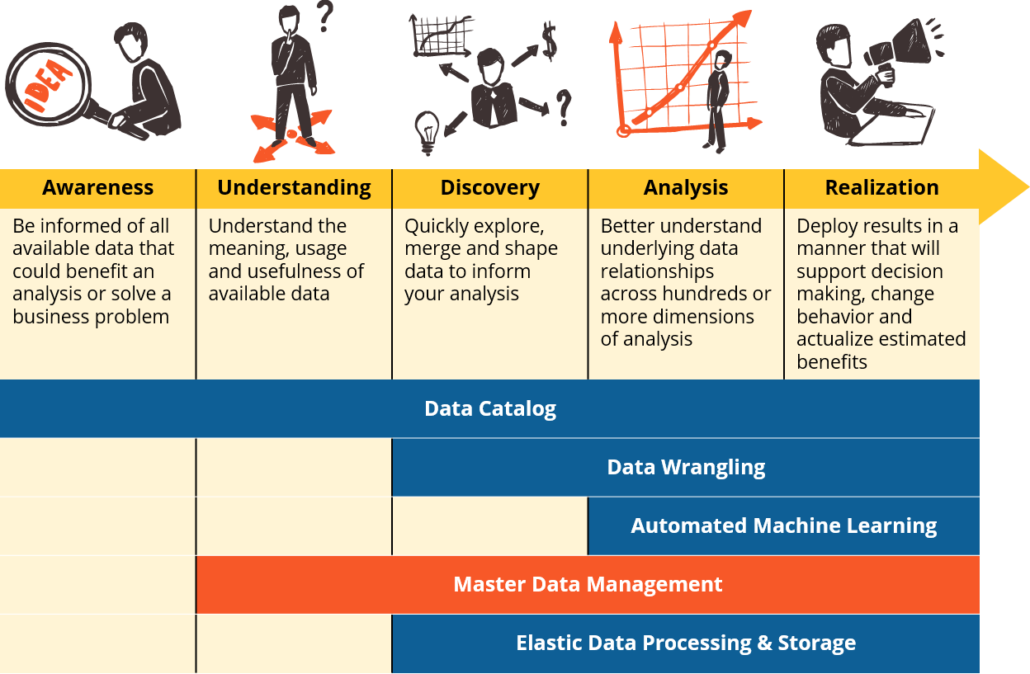Any journey requires a few things before getting started. Wandering through the forest can be a very pleasant experience, but if you don’t plan ahead and bring your compass and map, what happens if you get lost? (I know, you probably brought your smart phone, which has GPS. But then you find there is no signal, way out here in the forest…). Before starting an adventure like this, you need to prepare and make sure you are ready for any obstacles or unknowns that could occur.
Read moreTag Archive for: Master Data Management
Customer segmentation is defined as “the process of dividing customers into groups based on common characteristics so companies can market to each group effectively and appropriately.” By using the correct attributes to define the customer segment, it allows companies to identify the right customers for targeted and relevant offers. Those who successfully define and maintain customer segmentation can derive a competitive advantage from the implementation by improving customer experience.
Read moreData democratization is the ability of an organization to provide information to end users in an easy and effective way. The goal is to provide self-service of information to end users with minimal IT support. There are many things that can go wrong when rolling out data democratization projects. The purpose of this article is to identify potential issues and provide guidance on how to avoid them in the democratization process.
Read moreIs your company suffering from a case of “Bad Data”? Everyone is following the process and doing their job correctly but you still face issues with accurate reporting, operational errors, audit anxiety about your data, etc. Good data should be a given, right?
Well it’s not that easy. In today’s business environment, rapid growth, organizational change, and mergers and acquisitions (M&A) are very difficult to absorb within a fragmented data ecosystem. Multiple disparate IT systems, siloed databases, and deficient master data often result in data which is fragmented, duplicated and out of date.
Read more
Any discussion of Master Data Management automatically includes a discussion of Data Governance. The two go hand in hand. Successful MDM implementations require understanding data ownership, stewardship, and security, as well as determining business rules to be applied to the data. Specific business rules usually include rules for matching and consolidating data items as well as data quality checks. Read more
This is part four in our five part series on the essential capabilities of the competitive data-driven enterprise.

Businesses have been deploying enterprise data governance (defining what the data should be) and master data management (ensuring the data is as defined) programs for decades. Even if your company doesn’t have a formal master data management program by name, chances are good that they are doing some form of master data management in your data warehouse, CRM or ERP systems. As the trend towards decentralized data analysis continues to progress we see a few forces in play that make the case for incorporating a master data management capability into your organizational roadmap: Read more
If your organization is seeking to better manage its information as a corporate asset that is to be valued and capitalized, you’re likely focused on implementing programs that will catalyze measurable business results from mountains of business information that may be the product of the last decade or more of digital transformation initiatives. Read more
Governance is the ongoing process of creating and managing processes, policies, and information. This includes strategies, processes, activities, skills, organizations, and technologies for the purpose of accelerating business outcomes. It also involves creating organizations, roles and responsibilities to perform this management. In our experience, many organizations address governance once and often without completing the necessary tasks. Organizations that excel in data and analytics governance continuously manage the process on an ongoing basis. Read more
Master data management (MDM) efforts often get bogged down quickly due to business thinking that the entire process is owned by IT when in fact they need to set the standards. Knowing how to do that and what real MDM means will help make these efforts become collaborative and smooth to run. This article will answer several questions executives and other business leaders may have regarding MDM, in addition to proposing questions that should be used in order to leverage the full potential of MDM and illustrating real-world use cases. Read more

